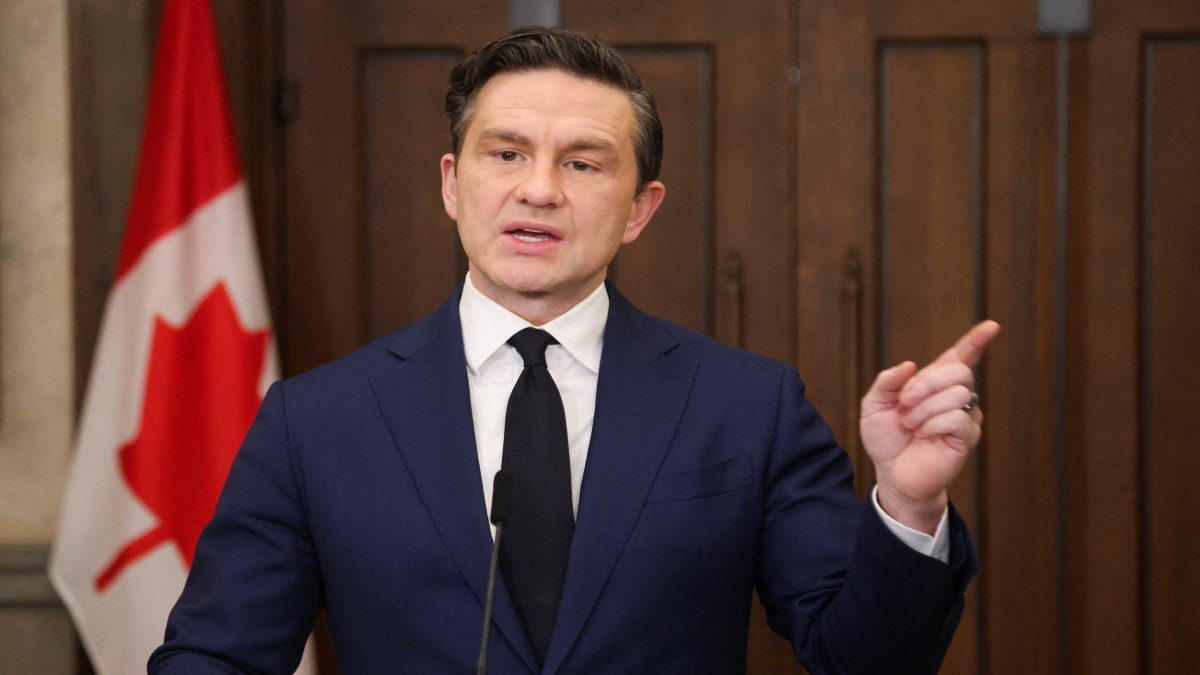The antics of Pierre Poilievre are quite a surprise for Canada’s typically civil political arena.
The more Canadian Prime Minister Justin Trudeau falters, the more his main conservative rival pushes forward.
Here’s how Poilievre is a lot like Trump.
About Pierre Poilievre
Poilievre, a Calgary native, grew up in an adopted household. Early in life, he became passionate about politics, and while attending college, he earned a prize for an essay he wrote on his plans as prime minister.
He vows to prioritise “Canada first!"—a catchphrase similar to Trump’s own “America first!"—because polls indicate he is likely to defeat Trudeau in the upcoming election.
He claimed to have “a plan to unleash the productive forces of our workers and businesses to bring home our money and defend our economy and to take back control of our borders, immigration, spending and everything else” during a press conference on Tuesday in both French and English.
A reputation for not holding back…
Poilievre has referred to Justin Trudeau as “weak” and a “wacko,” Valerie Plante, the mayor of Montreal, as “incompetent,” and Jagmeet Singh, the leader of the New Democratic Party, as a “sellout.”
In the House of Commons, where debates tend to be dull but have recently become more heated, he was expelled in April for the insult.
Poilievre, like the US president-elect Donald Trump, likes to use short, snappy phrases to summarise his political points.
For example, “Justinflation” is a portmanteau that blames the prime minister for inflation, while “Axe the tax” refers to a federal carbon tax.
Like Trump, he enjoys characterising himself as a victim of mistreatment by the media and elites.
He is also not very popular with women, which is another similarity to Trump.
Despite being viewed as an outsider, the veteran politician attracted sizable crowds to his rallies in 2022 when he ran for the leadership of the nation’s main opposition Conservatives.
Polarising messages
“Pierre Poilievre’s message is much more polarising. He banks more on anger, which is new in Canada,” University of Ottawa politics professor Genevieve Tellier told AFP, describing him as having the qualities of a pit bull.
It is all about “building a base,” she explained.
Nanos Research released ballot tracking data on Tuesday that shows Poilievre’s Conservatives are 20 points ahead of Trudeau’s Liberals, 43 to 23 percent.
After the next election, which is anticipated to take place in October 2025, that will be sufficient to form a majority administration.
For Felix Mathieu, a politics professor at the University of Winnipeg, “the parallels between Poilievre and Trump are growing.”
“Like Trump, he does not necessarily seek to rely on rational discourse, he relies on slogans, and he seeks to generate popular fervor more than support for ideas.”
Poilievre also has a history of sharing links to misleading information on social media if it supports his views.
He represents the right wing in the western half of the country and is heavily influenced by conservatives in the United States.
He backed the truckers’ lockdown of Ottawa, the nation’s capital, in 2022 because they opposed vaccination laws and other measures meant to stop the spread of COVID-19.
Recently, he shared on social media platform X a petition that rails against an alleged government plan to impose a “global woke program” on Canadians aimed at making everyone eat insects.
No such program exists.
That move was a way for the party to collect the contact information of possible supporters, but also to exploit Canadians’ exasperation with the political status quo, Mathieu said.
Analysts, however, point out that Poilievre often seeks to stand apart from Trump and presents himself as less extreme.
He rejects comparisons with Trump and promises to be “a leader who has the brains and backbone” when he faces a US president-elect who is threatening to impose 25-percent tariffs on Canadian imports.
With inputs from AFP


)

)
)
)
)
)
)
)
)



